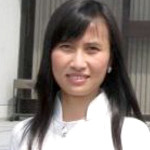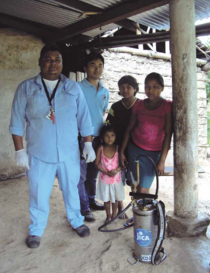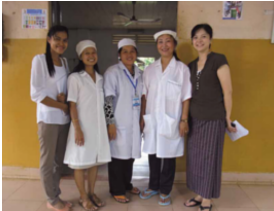Yen Hai Doan MD, MTM, PhD
 My name is Yen Hai Doan. I come from Vietnam.
My name is Yen Hai Doan. I come from Vietnam.
Before I came here, I worked at the National Institute of Hygiene and Epidemiology which serves for maintaining public health in my country, particularly with respect to various infectious diseases. My job at the time required a high level of working knowledge regarding infectious diseases, particularly those prevalent in tropical, developing countries including Vietnam. That was why I entered the Tropical Medicine Master’s course.
We were given access to a lot of advanced facilities during our studies. The lectures as well as hospital case reports by the professors, doctors and invited speakers were really helpful to widen our knowledge in tropical infectious diseases and related disciplines.
From the knowledge and skills I acquired in the master’s course, I wanted to strive to obtain an even higher and more advanced level of education by enrolling in the PhD course at this school under the supervision of Professor Nakagomi.
After graduation, I worked at Nagasaki University’s School of Medicine as a tenure-track assistant professor. Currently, I work as a researcher at the National Institute of Infectious Disease in Japan. Here, I am involved in research activities relating to gastroenteritis disease in children. The skills, knowledge and research practices I cultivated from the MTM course are extremely helpful. This positive experience in my research career from the MTM and PhD courses at Nagasaki University inspired me to seek a heightened level of involvement in new directions.

 My name is Yen Hai Doan. I come from Vietnam.
My name is Yen Hai Doan. I come from Vietnam.
